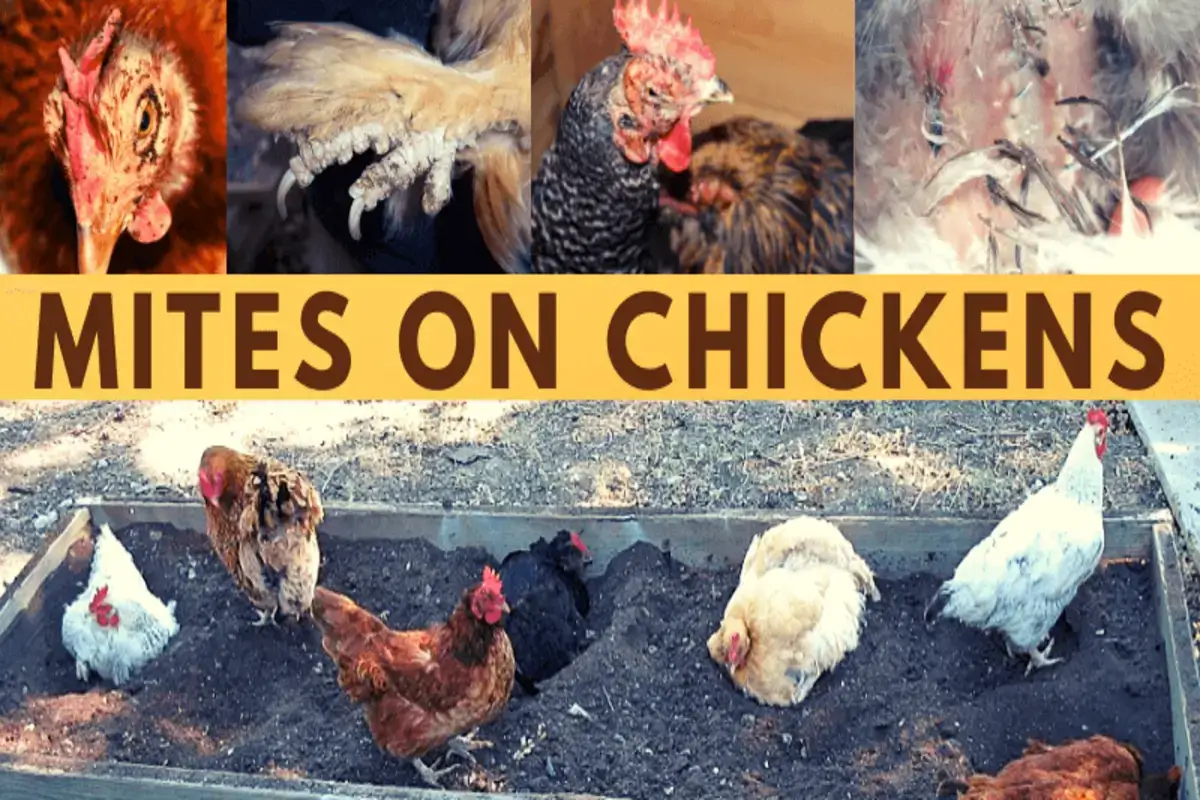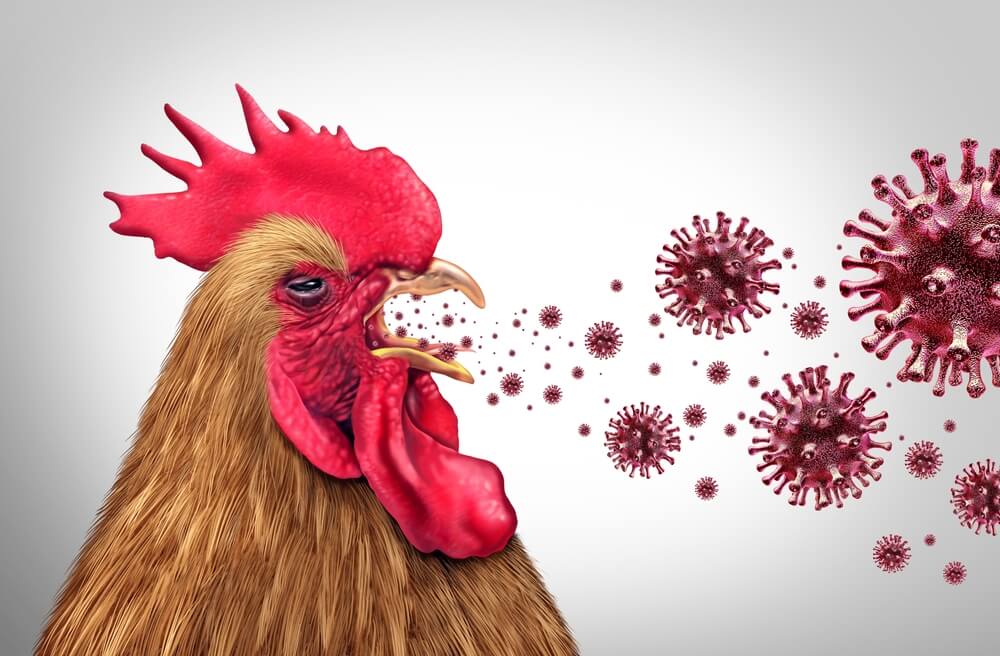Table of Contents
Everything You Need to Know About Backyard Chicken Lice
Chicken lice are the worst and these little buggers can affect your chickens health and happiness if left unchecked.
By the time you’re done with this post you’ll know what lice are, how to recognize an infestation and how to prevent and treat lice in your flock. Healthy chickens are just a few steps away. Let's do this together backyard chicken family.
Chicken Lice
To protect your flock you need to know what chicken lice are and how they can affect your birds.
What Are Chicken Lice?
Chicken lice are tiny, wingless parasites that feed on the keratin in your chickens’ feathers and skin. Unlike mites, which are bloodsuckers, lice only live on the feathers and don’t burrow into the skin. However, their presence can still cause discomfort and health problems for your chickens. For chickens dealing with other related pests like scaly leg mites, a product like SaveALeg Herbal Leg Salve can provide relief and support.
Chicken Lice Life Cycle
The life cycle of lice that infest chickens is quick and relentless:
Egg Stage (Nits)—Lice lay their eggs on the base of the chicken feathers, glue them in place. The eggs take 4-7 days to hatch.
Nymph Stage—Once hatched the immature lice (nymphs) start feeding and go through several molts as they mature.
Adult Stage—Adult lice can live on your chickens for about a month, laying eggs and multiplying non-stop.
Chicken lice love warm, humid environments and can spread fast if not managed.
How Do Chicken Lice Affect Chickens?
If left untreated lice infestations can cause:
Feather loss and stress from lice can impact overall chicken health including weigh loss. Discover tips on feeding and caring for your chickens to boost their immunity.
Reduced Egg Production—Lice can stress laying hens and cause fewer or smaller eggs.
Now that you know the life cycle and impact of chicken lices you can start protecting your flock.
How to Tell if Your Chicken Has Lice
How do you know if your chickens have lice? Here are the signs to look for:
Excessive Preening or Scratching—Chickens scratching or preening constantly may be trying to relieve the itching.
Visible Nits (Lice Eggs)—Check the base of their feathers especially around the vent area for small white clusters of eggs.
Tattered or Missing Feathers—Feathers may be damaged, patchy or missing altogether, especially around the vent or under the wings.
Restlessness and Decreased Activity—Infested chickens may be lethargic or act out of character due to stress.
Pale Combs and Wattles—A heavy infestation can cause anemia and combs and wattles will lose their red color.
Regular checking of your flock is key to catching lice early.
Prevention and Control
The best way to manage chicken lice is to prevent an infestation in the first place. Here’s how you can make your chickens’ environment less lice friendly and respond if they do get lice.
1. Coop Hygiene
Clean the coop regularly by removing old bedding and poop.
Disinfect roosts, nesting boxes, and other surfaces to get rid of lice and nits. Proper coop setup, including well-designed roosting bars, can also reduce the risk of infestation.
Use diatomaceous earth or poultry safe insecticidal powders in cracks and crevices where pests hide. First Saturday Lime which is non-toxic may be a good option to help with lice control.
2. Dust Baths
Dust baths are your chickens’ natural defense against parasites.
Provide a dust bath area with dry dirt, sand, and wood ash to help your chickens fend off pests.
For an extra layer of protection, consider adding a sprinkle of diatomaceous earth, such as the one included in the Winter Support Bundle, to make it more effective against lice. Learn more about pest management including Chicken Mites which is a closely related topic.
3. Inspect and Quarantine New Birds
When getting new chickens:
Inspect them for lice or other parasites.
Quarantine them for at least 2 weeks to make sure they are pest free before introducing them to the flock.
4. All Natural Remedy
For a chemical free approach:
Mix 1 part apple cider vinegar with 3 parts warm water and spray it lightly on the chickens’ feathers.
Another natural solution is using essential oils like neem oil diluted in water as a spray which repels lice. When treating chicken lice with neem oil, a typical dilution is 2 tablespoons of neem oil per gallon of water; this translates to a 1:256 dilution, which is considered safe and effective for chickens
5. Commercial Treatments
If the infestation is bad, commercial treatments may be what's needed:
Use products like permethrin dust or sprays specifically for poultry.
Always follow the instructions and make sure the treatment is safe for laying hens if you eat their eggs.
6. Treat All Chickens in the Flock
Lice spread fast among chickens so all birds should be treated even if only one shows signs of infestation.
FAQs About Chicken Lice
1. How to get rid of lice in chickens?
To kill adult lice the most effective option is a permethrin powder or spray designed for chickens. You will need to repeat this weekly until all the nits have hatched. Once you have cleared the infection prevent your hens from getting re-infected by minimizing their contact with wild birds
2. Do chicken lice affect humans?
No, chicken lice are host specific and cannot live on humans. However, handling infested chickens may cause temporary itching or irritation.
3. Can lice make Chickens sick?
No, lice do not normally make chicken's sick but they can impact their overall health causing discomfort and decreasing egg production. Lice feed on dead skin and feather dander and don't suck the chicken's blood like chicken mites do.
4. How do you know if chickens have lice?
Some of the common signs of any type of mite or lice infestation in a chicken are decreased activity or listlessness, pale comb, changes in appetite, a drop in egg production, weight loss, feather-pulling, bald spots, redness or scabs on the skin, dull, ragged-looking feathers.
5. What kills chicken lice?
Ivermectin and Permethrin can be used in conjunction with Elector PSP to effectively eradicate poultry lice and mites. The coop needs to be thoroughly cleaned and sprayed with Elector PSP prior to allowing the treated chickens back into the area. Other more natural treatments like neem oil, apple cider vinegar or First Saturday Lime can also be part of the solution.
Be proactive in managing chicken lice
Chicken lice may be small but their impact on your flock can be big. By knowing the signs of infestation, keeping the coop clean and acting fast with the right treatments and prevention methods, you can spare your flock the discomfort and keep them happy and healthy.







